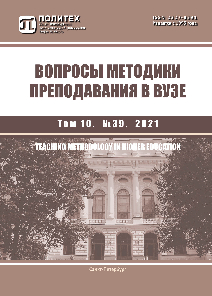Training linguists in translation of economic discourse taking into account translation strategies
The article describes the elements of the methodology of evidence-based translation practice teaching of linguistic profile students, devoted to the study of translation strategies using examples of translation from English into Russian. The methods used in writing the article are the analysis of scientific literature on the theory of translation and the linguistic cultural analysis of text translation options using translation strategies. The article discusses the meanings of the term "translation strategy" on the basis of Russian and foreign studies, and a comparative analysis of the existing definitions of this term is carried out. The problems of identifying the strategies themselves are studied, and an attempt is made to identify the most important strategies for their use in teaching linguists the practice of translation. The classifications of translation strategies by D. N. Shlepnev, M. Kh. E. Guerrero, I. S. Alekseeva, T. A. Kazakova and other scholars are considered. The main strategies noted in scientific works are microstrategy, macrostrategy, foreignization and domestication. The article explicates the essence of these strategies and gives examples of their use in the translation of economic discourse from The Economist using the methods of contextual replacement, semantic development, transliteration, etc. It is revealed that the foreignization strategy is the most pronounced when translating from English into Russian. The article also discusses the importance of teaching translation strategies to linguistic students. It is shown that training in translation strategies is a methodological aspect of the professional education of future translators, and it should be introduced in the translation theory discipline, deepened in the translation practice discipline and precede the consideration of translation techniques, which exemplify translation tactics in relation to strategies.



